Review for Oedipus Rex (Masters Of Cinema)
I must confess that I always thought Freud’s theory about the Oedipus Complex was completely hat-stand. OK – so the Greek play may have had some semblance of truth; husbands jealous of baby boys and young sons jealous of their fathers. But the bit where a young boy lusts after his own mother always felt like a theory too far.
Pier Palo Pasolini isn’t shy about exploring the taboo. After all, he’s probably still best known in this country for his ‘Salo: 120 Days of Sodom’. So the combination of Freud’s theory and the sheer drama associated with the original Greek tragedy clearly was a fascinating subject for Pasolini. But what he produced, despite some firm nods to the Austrian father of psychology, is pretty much a re-telling of the Sophocles original play where a young man grows up, unwittingly kills his Father and then marries his own Mother. Now that’s something you don’t see every day - not even in ‘Eastenders’.
It’s difficult to fathom that this movie, produced at the height of the hippy era (1967), is now some 45 years old. It still looks great, helped on by a fine transfer, full of colour and theatrical zest, despite some very barren exterior locales.
The film opens in rural Italy. The mother with her child and the slightly aloof military father who, when left alone with the child, articulates his displeasure at the way his son has stolen the mother/wife’s affections.
The film then unapologetically shifts to ancient Greece (don’t worry – it works). The King of Thebes sends his unfortunate son out into the desert to be killed by a servant as he sees him as a potential threat. However, the servant cannot bring himself to commit the murder and instead delivers the child to the Royal House of Corinth where he can be raised as their own.
Fast forward a few years and the boy, Oedipus (Franco Citti) learns of the prophecy which suggests his destiny is to kill his Father and become his mother’s lover. In order to avoid the horror of suc a fate he wanders alone in the desert.
However, as in all Greek tragedies not everyone lives happily ever after (I don’t want to spoil this for you but you don’t have to Sherlock Holmes to figure out how things will pan out).
The movie was shot in remote Tunisia and Morocco and has a very minimalist feel. Whether stylised that way or determined by budget, it’s hard to tell, though it definitely works.
Pasolini also uses the weirdest array of theatrical props, giving the whole thing an unreal and possibly unintended ‘am-dram’ feel, though bizarrely it does lend the film a charming air. I guess it’s fair to say that this is a Greek drama after all and somehow the folksy theatricalities fit the bill.
The pace will frustrate contemporary blockbuster enthusiasts. It’s often ponderous though effectively so. So there are moments when our protagonists are lost in thought. Pasolini allows the breathing space to let that happen; an often highly effective strategy but one which depends on its audience to comply. Lovers of the recent ‘Transformers’ movies for example will find this film to be at the opposite end of a long spectrum of film-pacing. But I liked it.
This release is available in Blu-Ray too and if the DVD transfer is anything to go by, I feel sure that the added clarity of HD will be wondrous and well worth the extra couple of quid. It looks as though it might have been shot on 16mm. It certainly has an intrinsic grain though, to be fair, that ‘look’ was gaining popularity at the time.
All in all, whilst not quite his finest hour, ‘Oedipus Rex’ delivers more than it promises. Its subject matter may sound a little heavy going but the results are anything but. There are some brilliantly constructed scenes and some really impressive cinematography here that really make this a cut above the average.
If you are a fan of Pasolini’s, or Eureka’s Masters of Cinema series in general then it’s well worth checking out.
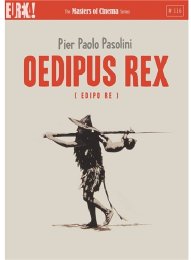


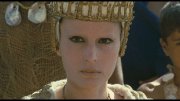


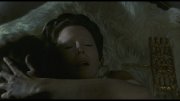

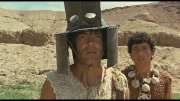

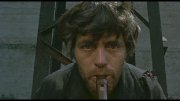






































Your Opinions and Comments
Be the first to post a comment!